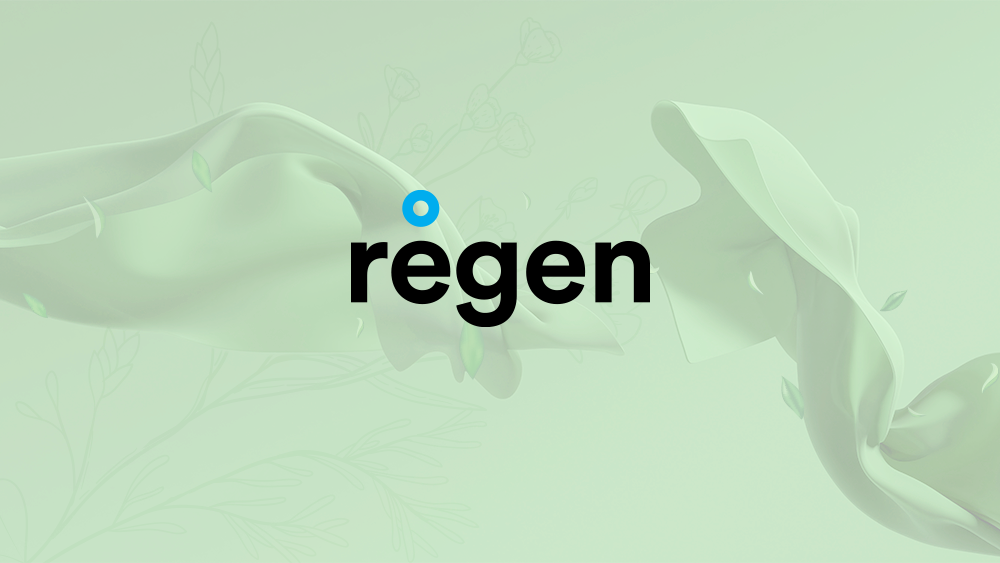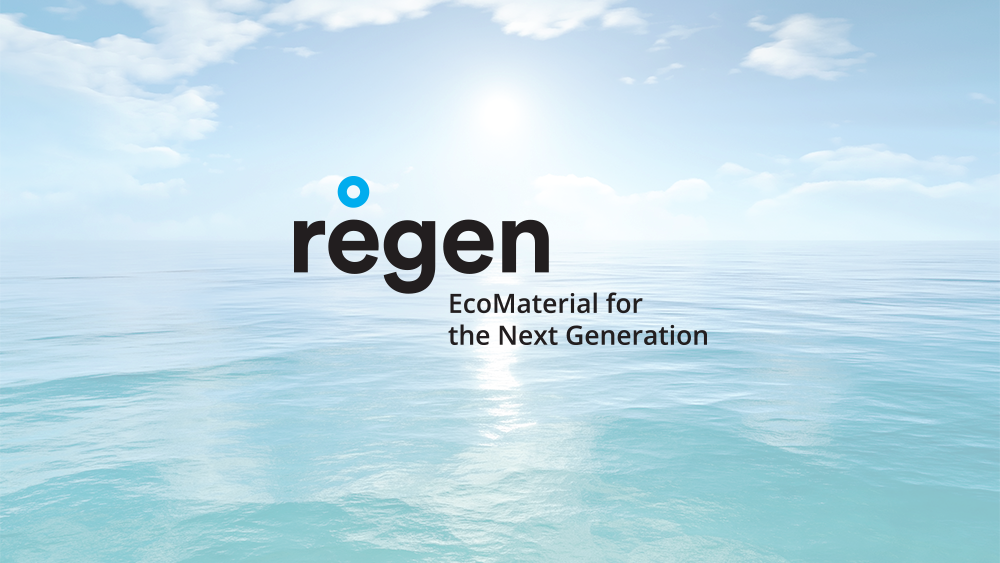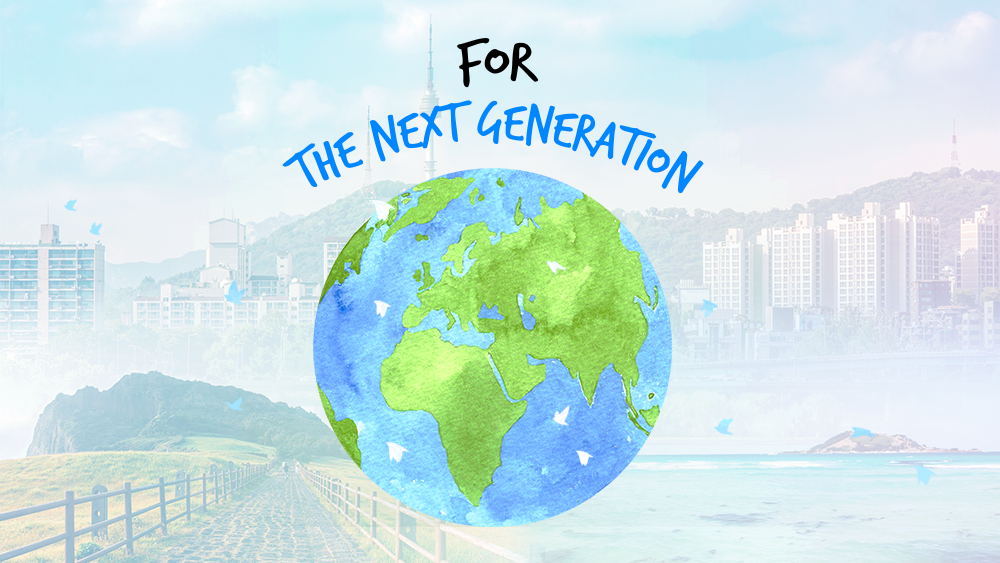Five Different regen Brand Stories
2023.04.18

You may have heard that the fast fashion industry is the main culprit of climate change. A fast fashion trend life cycle is often two weeks and the industry as a whole accounts for around half of the global fashion industry. With the ever-increasing influence of the fast fashion names, overall fashion trend cycles are getting shorter than every before. Given the amount of discarded clothing, consumption of industrial water for the manufacturing process, and its impact on global carbon emissions, it is no exaggeration at all to say the industry is one of the biggest contributor to climate change.
What has recently been witnessed is the growing call for ‘slow fashion’ in opposition to its counterpart, especially among consumers wary of the issues of climate change. In turn, many global fashion names are turning to an eco-friendlier textile brand which could help them better respond to such demand. That is Hyosung TNC’s regen which first was introduced to the market in the 2000s. That is when the fast fashion industry was also gaining traction. Hyosung TNC had long been working on developing the eco-friendly textile even when the fashion industry was not necessarily environmentally conscious. In 2007, the company finally succeeded in developing regen nylon with a technology that recycles discarded fishing net and rope. In the following year, Hyosung TNC developed a regen Polyester fiber by recycling used PET bottles.
As such, Hyosung TNC has literally been trailblazing on this issue. Let’s take a look at the company’s journey of developing full regen product line-ups of recycled fibers from polyester to spandex.

'regen' is Hyosung TNC's brand name for its eco-friendly spandex, nylon and polyester fiber. Facing the challenge to save the earth, Hyosung TNC strives to show the next generations a better world through the eco-friendly 'regen' brand. With a spirit of challenge and innovation, Hyosung TNC gives new life to plastic waste as high-quality eco-friendly fiber, while leading the circular economy of the petrochemical industry. Hyosung TNC will continue to aim to building a virtuous cycle through fiber technology, looking far into a more sustainable future.
I. regen Spandex, the eco-friendly story of the world's No. 1 spandex
A life without spandex fibers is almost unimaginable. Just imagine if you have to walk in a suit or leggings that do not stretch. Can spandex fabric be environmentally friendly? The answer is yes. Hyosung TNC regen spandex is made from industrial waste while maintaining regular spandex function. Producing one ton of regen spandex would in turn have the same environment-friendly impact as planting 889 pine trees that are 30 years old. Consumers wearing clothing made of regen spandex constitute a small step toward building an eco-friendly lifestyle and make a difference in the efforts to save our planet.
II. regen Nylon, a revolutionary eco-friendly fiber
Nylon is the world’s first synthetic fiber used for making stockings and underwear. Hyosung TNC brings added value to nylon too. The company developed a technology that recycles materials from discarded fishing nets and ropes to produce regen Nylon in 2007, for the first time in the world. The fabric is not only environmentally friendly but also considered high performance. Hyosung regen Aqua-X fabric is used for swim suits or workout outfits for its sweat-absorbing and quick-drying properties as well as cool-touch, soft and skin-friendly quality. Naturally, demand for this fabric increases in summer time. The world’s first environmentally friendly heavy-duty nylon regen Robic is known for its super resistance to tear and abrasion as well as wind and rain. It is also for its lightweight technology, suitable for outdoor gears. If you are up for workouts in summer time or outdoor adventures, this is the fabric that can offer you joy, health and a sense of fulfilment for your contribution to the environment.
III. Turning marine pollutants into a valuable material, regen Ocean Nylon
It may not intuitively be obvious that an eco-friendly fiber helps preservation of the marine ecosystem. Discard fishing nets are one of the main culprits of the destruction of marine ecosystem. Abandoned, lost or otherwise discarded fishing nets destroy the underwater ecosystem, taking the lives of marine organisms that become entangled. It takes up around 600 years for them to break down and in doing so they shed microplastics that are becoming some of the biggest threats to the marine ecosystem. Even if these fishing nets are collected for incineration, this process also could entail the emission of a lot of pollutants into the air. As such, Hyosung TNC has developed regen Ocean Nylon in order for these abandoned fishing nets to be reborn as a valuable eco-material. The company is expanding its facility for depolymerization to increase the production capacity of regen Ocean Nylon.
IV. To catch two birds with one stone, regen Polyester
Hyosung TNC regen Polyester is an environmentally friendly fiber made of discarded PET bottles. It comes with various features with high performance such as regen Askin of cool touch yarn, regen Cotna of natural cotton-touch polyester yarn, regen Aerolight of lightweight yarn, regen Aerosilver of odor-resistant yarn, regen Xanadu of strong elasticity, and regen Aerocool of sweat-absorption and quick-drying yarn. Pursuing environmental friendliness is itself commendable but producing such eco-friendly yarns with high performance is even more commendable. Hyosung TNC is committed to offering more diverse regen polyester products of eco-friendly nature to help better protect our planet.
V. regen Ocean polyester, contributing to healthy ocean ecosystems
It is not only discarded fishing nets that destroy the marine ecosystem. Across the world, around a million sea birds and 100,000 marine mammals die[1] each year from plastic waste. In order to protect the ocean wildlife and humanity from plastic debris in the ocean that account for 47% of the ocean waste[2], Hyosung TNC collects PET bottle waste from the ocean and turn them into regen Ocean Polyester fiber. It obtained the Ocean Bound Plastic (OBP) certification for its contribution and has been extensively used in various apparel brand names for their production. You might be surprised to find how easily you will bump into this name on the tag of your clothes. Isn’t it just cool to wear clothes that could have contributed to saving a whale or two in the ocean?
The tale of two cities, regen Jeju and regen Seoul project initiative designed to recycle waste in the two cities
If you want to know more about Hyosung TNC’s eco-friendly fiber products? Look no further than Seoul and Jeju. Firstly, Jeju is an island of three UNESCO heritage sites and known for breathtaking beauty. Hyosung TNC has launched a joint project titled ‘regen Jeju, Restoration to be Reborn’ alongside Jeju local government and the Ministry of Environment in 2020. Under this initiative, discarded PET bottles in Jeju Island are collected to be reborn as regen Jeju polyester fiber, which then has been used by the global outdoor brand North Face for its products. Building on its success story in Jeju, Hyosung TNC embarked on ‘regen Seoul’ project in 2021 by joining hands with Seoul Metropolitan Government to create an eco-friendly regen Seoul yarn. Going forward, this initiative is to be expanded under ‘regen Korea’ project to use plastic waste in Korea for another eco-friendly fiber.

Whether it is on land or in ocean, collecting waste and turning them into eco-friendly yarns is not an easy feat. It requires unwavering efforts in research and development as well as investment and energy to produce a high quality performance yarn that is eco-friendly. That said, it is worth doing it if it means we can contribute to the value of sustainability and environmental friendliness that will be critical for the life of our future generations. Since as early as 2007 when not many paid attention to the environmental issue, Hyosung TNC has put strenuous efforts to research and develop technologies to protect our environment. The company is to continue on its endeavor to produce eco-friendly fibers for the sake of our future generations.
Hyosung TNC’s regen brands as well as RE:GEN(Reply to Every Generation's Future) that is Hyosung Group’s ESG initiative are all about responding to the call of our time for the sake of our future generations. If we put extra attention to things taken for granted for a long time, our future should be filled with hope. Hyosung TNC is ready to put more emphasis on environment and our future generations than we do for immediate profits and management outcome. In doing so, we at Hyosung believe we can bring in a future where humanity as a whole can live happier and longer on our planet Earth. To this end, Hyosung is to continue to pursue collaborations and joint projects for the sake of sustainability and environment.